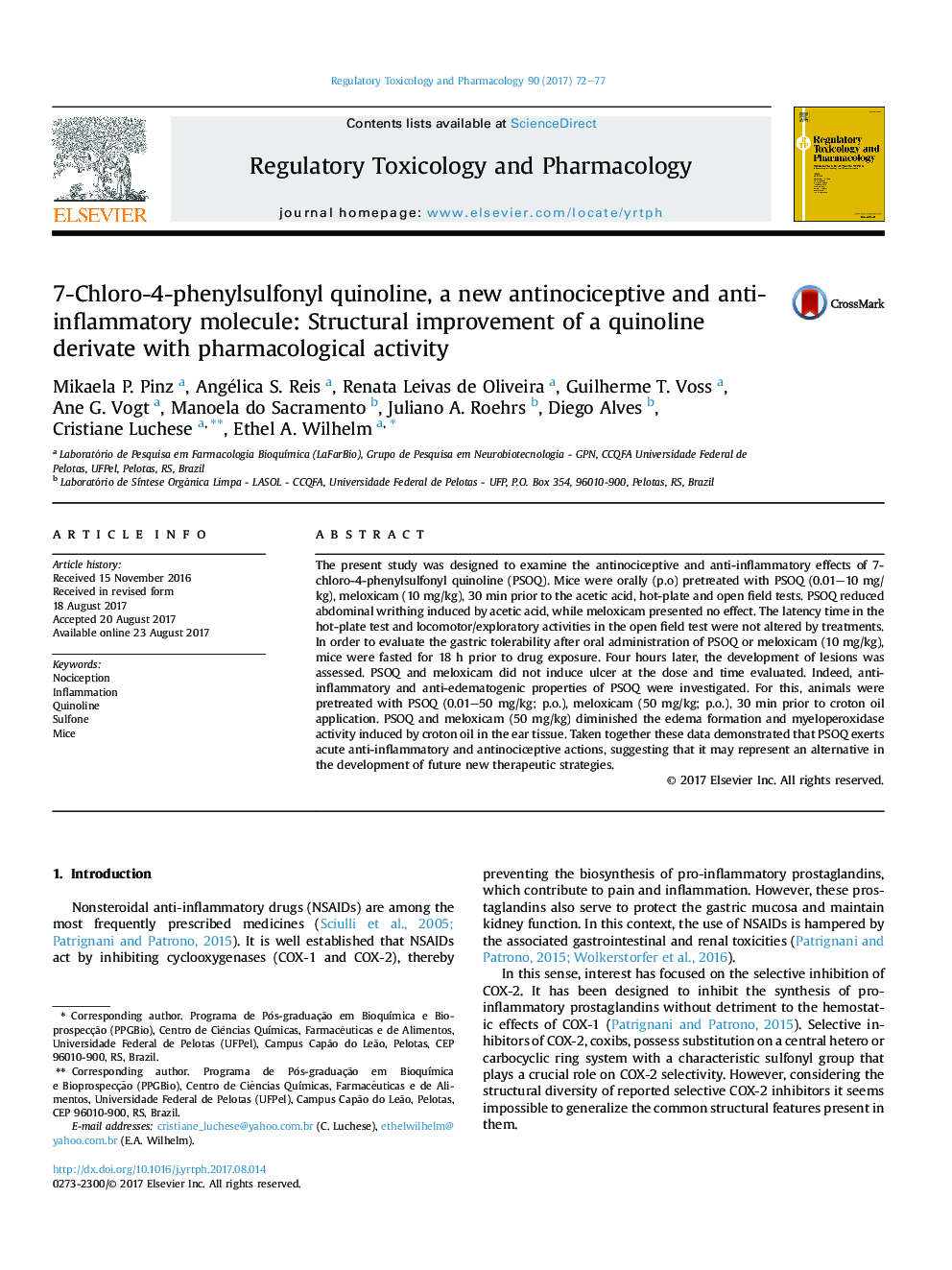| Article ID | Journal | Published Year | Pages | File Type |
|---|---|---|---|---|
| 5561097 | Regulatory Toxicology and Pharmacology | 2017 | 6 Pages |
â¢PSOQ exerts antinociceptive and anti-inflammatory effects.â¢PSOQ did not cause gastrointestinal ulceration and sedative effects.â¢PSOQ suppressed the severity of croton oil via inhibition of MPO activity.
The present study was designed to examine the antinociceptive and anti-inflammatory effects of 7-chloro-4-phenylsulfonyl quinoline (PSOQ). Mice were orally (p.o) pretreated with PSOQ (0.01-10Â mg/kg), meloxicam (10Â mg/kg), 30Â min prior to the acetic acid, hot-plate and open field tests. PSOQ reduced abdominal writhing induced by acetic acid, while meloxicam presented no effect. The latency time in the hot-plate test and locomotor/exploratory activities in the open field test were not altered by treatments. In order to evaluate the gastric tolerability after oral administration of PSOQ or meloxicam (10Â mg/kg), mice were fasted for 18Â h prior to drug exposure. Four hours later, the development of lesions was assessed. PSOQ and meloxicam did not induce ulcer at the dose and time evaluated. Indeed, anti-inflammatory and anti-edematogenic properties of PSOQ were investigated. For this, animals were pretreated with PSOQ (0.01-50Â mg/kg; p.o.), meloxicam (50Â mg/kg; p.o.), 30Â min prior to croton oil application. PSOQ and meloxicam (50Â mg/kg) diminished the edema formation and myeloperoxidase activity induced by croton oil in the ear tissue. Taken together these data demonstrated that PSOQ exerts acute anti-inflammatory and antinociceptive actions, suggesting that it may represent an alternative in the development of future new therapeutic strategies.
